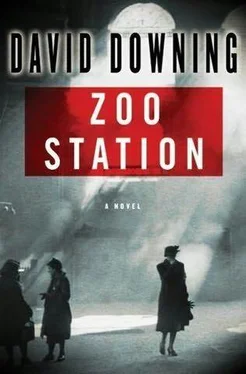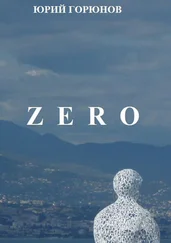David Downing - Zero Station
Здесь есть возможность читать онлайн «David Downing - Zero Station» весь текст электронной книги совершенно бесплатно (целиком полную версию без сокращений). В некоторых случаях можно слушать аудио, скачать через торрент в формате fb2 и присутствует краткое содержание. Жанр: Шпионский детектив, на английском языке. Описание произведения, (предисловие) а так же отзывы посетителей доступны на портале библиотеки ЛибКат.
- Название:Zero Station
- Автор:
- Жанр:
- Год:неизвестен
- ISBN:нет данных
- Рейтинг книги:5 / 5. Голосов: 1
-
Избранное:Добавить в избранное
- Отзывы:
-
Ваша оценка:
- 100
- 1
- 2
- 3
- 4
- 5
Zero Station: краткое содержание, описание и аннотация
Предлагаем к чтению аннотацию, описание, краткое содержание или предисловие (зависит от того, что написал сам автор книги «Zero Station»). Если вы не нашли необходимую информацию о книге — напишите в комментариях, мы постараемся отыскать её.
Zero Station — читать онлайн бесплатно полную книгу (весь текст) целиком
Ниже представлен текст книги, разбитый по страницам. Система сохранения места последней прочитанной страницы, позволяет с удобством читать онлайн бесплатно книгу «Zero Station», без необходимости каждый раз заново искать на чём Вы остановились. Поставьте закладку, и сможете в любой момент перейти на страницу, на которой закончили чтение.
Интервал:
Закладка:
They left the car on Dorotheenstrasse and walked the single block to the Unter den Linden. Across the wide, now-lindenfrei, avenue, they could see the queue stretching up Wilhelmstrasse past the side of the Adlon. There were no uniforms in sight, no pointing fingers, no scuffle in progress.
They crossed Unter den Linden and walked toward the end of the queue. Albert was about ten from the back, standing close to the stone building on his right, but making no effort to conceal himself. When he saw Russell he simply walked out of the queue. “This is hopeless,” he said to no one in particular. “I’ll come back tomorrow.”
“We were looking for you,” Russell said. “The car’s this way,” he added, thinking that he’d seen pantomimes with more convincing scripts. Several facial expressions in the queue offered unwelcome confirmation of this opinion.
But there was no sign of the audience that mattered. The three of them walked back to Dorotheenstrasse.
“In the back,” Russell told Albert, indicating the tight space behind the seats. He drove three blocks down Dorotheenstrasse, turned right onto the much busier Friedrichstrasse, and headed south toward Hallesches Tor. He dropped Effi off by the elevated station.
“Be careful,” she said, as she kissed him goodbye through the driver’s window. “I’ll see you tonight.”
I hope so, Russell thought. He glanced across at Albert, who was now sitting beside him. The boy looked about sixteen.
“How old are you?” he asked.
“I was eighteen last month.”
The age I was when I went to war, Russell thought. A tram swung in front of him, causing him to brake sharply. Concentrate, he told himself. An accident now really would be fatal.
They drove past Tempelhof as a small plane took off, then under the Ringbahn and on toward Mariendorf, the city growing thinner with each mile. A police car went past in the opposite direction, two plainclothes Kripo men chatting in the front seats, but that was all. Twenty minutes after leaving Dorotheenstrasse they were out on the lake-strewn Mittelmark, passing under a completed section of the orbital autobahn.
So far, so good, Russell thought.
“My mother gave me the message from my father,” Albert said, breaking the silence. “What exactly did he say?”
Russell repeated what he remembered.
“They beat him badly, didn’t they?” Albert asked.
“Yes, they did.”
Albert fell silent again. They passed through Zossen, where a surfeit of signs pointed would-be visitors in the direction of General Staff HQ. The complex of buildings came into view, and Russell found himself wondering which maps the planners had on the tables that day. Poland, most likely, and all points east.
He wondered if the Soviets would put up a fight. Their German operation was hardly impressive-a boy with shaky hands and a man in Kiel they couldn’t risk. Where had all the communists gone? Seven years ago they’d been slugging it out with the Nazis-millions of them. Some would still be lying in wait for the right moment, but most, he suspected, had simply turned their backs on politics. He hoped that whoever was waiting in Gцrlitz knew what the hell he was doing.
“Where have you been staying?” he asked Albert, once they were back in open country.
“It’s better you don’t know,” the boy said.
“It probably is,” Russell agreed.
Silence descended again. Albert seemed calm enough, Russell thought. Calmer, in fact, than he felt himself. At least the car was behaving, its engine purring smoothly as they cruised along the mostly deserted road at 65 kph. Everyone else had chosen the autobahn.
The sky to the south seemed clearer, which suggested a cold, clear night. Did that augur well or badly for an illicit border crossing? Visibility would be better for everyone-pursuers and pursued. He tried to remember what phase the moon was in, and couldn’t.
Albert had rescued the Beobachter from the floor between them. “Why do you read this rubbish?” he asked, scanning the front page.
“To know what they’re doing,” Russell said.
Albert grunted disapproval.
“Which reminds me,” Russell went on. “There’s a piece in there about the crisis in Ruthenia…”
“Ruthenia? Where’s that?”
“It’s part of Czechoslovakia. Look, you need to know this stuff. Czechoslovakia is more than Czechs and Slovaks. There’s Moravians and Hungarians and God knows who else. And Ruthenians. The Germans are encouraging all these groups to rebel against the Czechoslovak government, in the hope that they’ll provoke a major crackdown. Once that happens, they’ll march in themselves, saying that they’re the only ones who can restore order and protect these poor victimized minorities.”
“All right.”
“And the Czech government has started taking action against the Ruthenians. Read the piece. See how pleased the Germans are. ‘This is not the sort of behavior that any government could tolerate in a neighboring state, etc.’-you can practically see them rubbing their hands with glee. They’re preparing the ground. So keep an eye on the news. Don’t hang around in Prague any longer than you have to, or you’ll find Hitler’s caught up with you.”
“I have the names of people in Prague,” Albert insisted. “They will tell me.”
“Good. But remember Kristallnacht-and what a surprise that was, even after five years of persecution. If I were you, I’d head for Hungary as soon as I could. Once you’re there you can work out the best way to England.”
“I don’t think I will be going to England. My plan is to go to Pales-tine.”
“Oh,” Russell said, taken by surprise. “Does your mother know?”
“Of course. I am a man now. I must do what is best for the whole family. When I get work and somewhere to live, I can send for them.”
“Immigration is restricted.”
“I know that. But we will find a way.”
“If there’s a war, they’ll stop it altogether.”
“Then we will wait.”
They were entering Kottbus now, and Russell concentrated on not drawing attention to his driving. But the market town seemed caught in its afternoon nap, and they were soon back in open country. A few kilometers more, and they passed under the Silesian autobahn. Their road grew suddenly busier, and a sign announced that they were 93 kilometers from Gцrlitz.
It was not yet three o’clock. At this rate they would arrive far too early. They needed one of those stopping places with a view which the Germans loved so much.
The Germans, Russell repeated to himself. After fifteen years of living there, of feeling a little more German each year, the process seemed to have slipped into reverse. Lately, he seemed to be feeling a little less German each day. But not more English. So what did that make him?
“Why are you doing this?” Albert asked him.
Russell just shrugged. “Who knows?”
“The reason I ask-a year ago, before Kristallnacht, I used to wonder how people could be so cruel, but I never questioned why someone was kind. Now it’s the opposite. I can see all sorts of reasons why people are cruel, but kindness is becoming a mystery.”
He was six years older than Paul, Russell thought. Just six years. He tried to think of an adequate answer to Albert’s question.
“Whatever the reason, I thank you anyway,” Albert said. “My family thanks you.”
“I think there are many reasons,” Russell said. “Some good, some not so good. Some I don’t understand myself. I like your family. Maybe it’s as simple as that.” And maybe, he thought, any half-decent family in the Wiesners’ situation would have been enough to push him off his fence.
The phrase “I used to be a good journalist” passed through his mind, leaving him wondering where it had come from. This had nothing to do with journalism. He thought about McKinley’s papers, uselessly hidden in the poste restante, and came, with a sudden lift of the heart, to a realization so obvious that he couldn’t believe he had missed it. If he was going to risk his life and liberty for a few military secrets, then why not take out McKinley’s papers as well? He had only one head to cut off.
Читать дальшеИнтервал:
Закладка:
Похожие книги на «Zero Station»
Представляем Вашему вниманию похожие книги на «Zero Station» списком для выбора. Мы отобрали схожую по названию и смыслу литературу в надежде предоставить читателям больше вариантов отыскать новые, интересные, ещё непрочитанные произведения.
Обсуждение, отзывы о книге «Zero Station» и просто собственные мнения читателей. Оставьте ваши комментарии, напишите, что Вы думаете о произведении, его смысле или главных героях. Укажите что конкретно понравилось, а что нет, и почему Вы так считаете.












